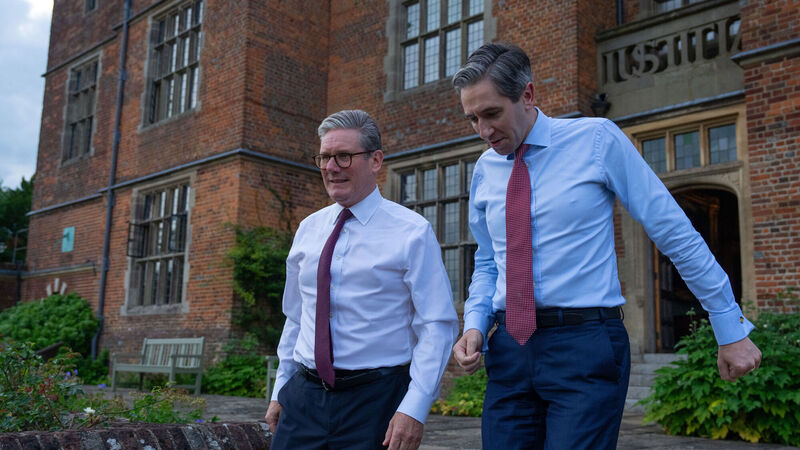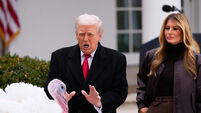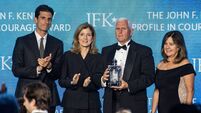Paul Hosford: Forgive us our prayers for bland political pragmatism

British prime minister Keir Starmer, left, and Taoiseach Simon Harris take a walk of the grounds during Mr Harris’ visit to Chequers, the country house of Mr Starmer, near Aylesbury, Buckinghamshire, England. Picture: Carl Court/PA
















